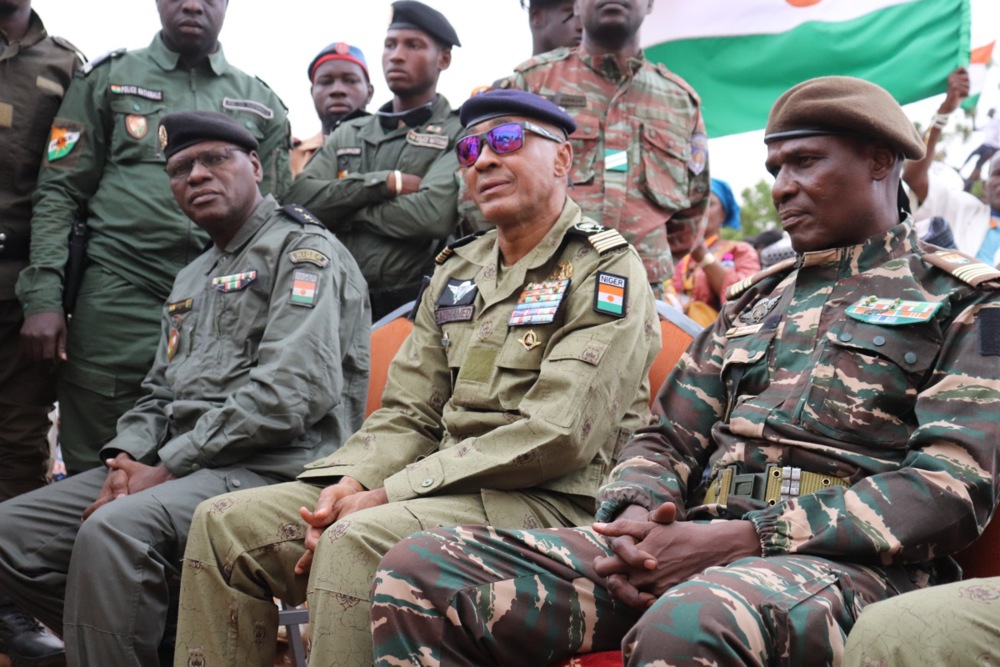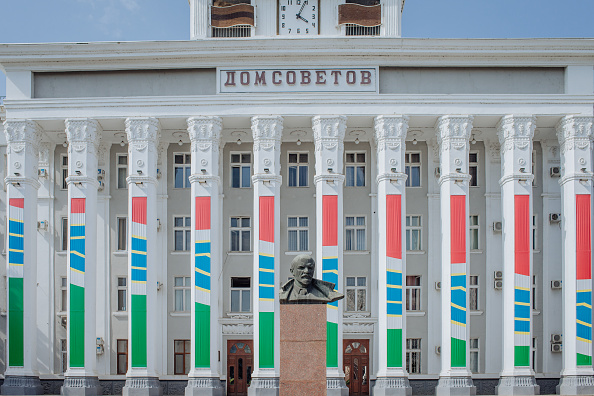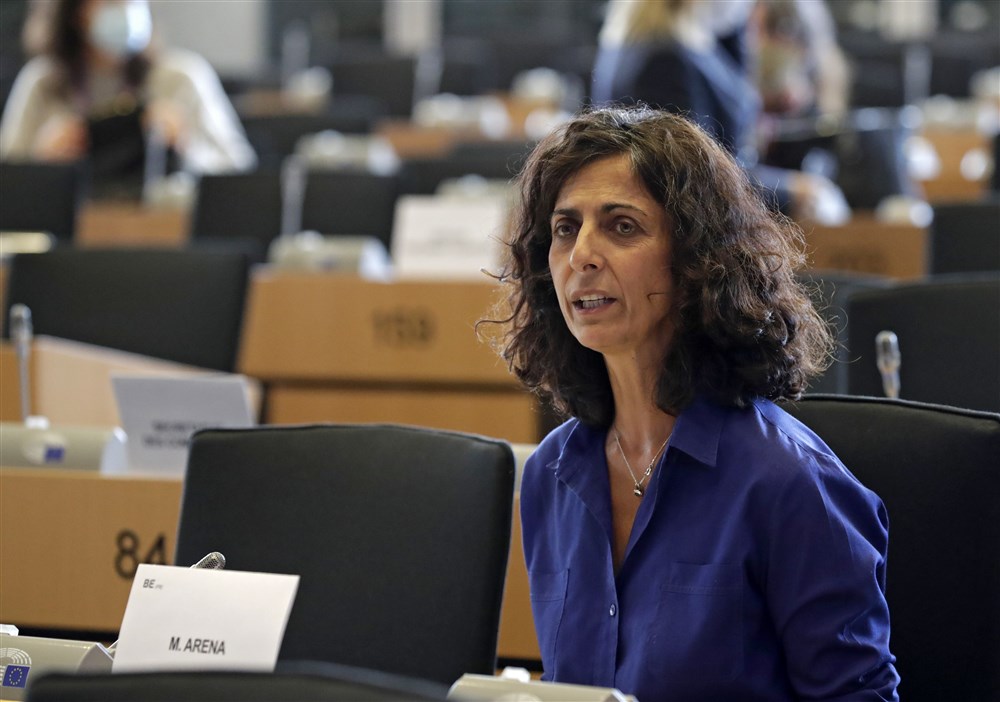Amid the intense global coverage of events in Israel since the inhuman atrocities perpetrated by ISIS/Hamas on October 7, and with Western publics distracted by the vast, obnoxious, pro-Palestine/Hamas marches on our streets in recent weeks – with their associated terrorist-sympathising, anti-Semitic genocidal rhetoric – important developments in Ukraine have not received quite the attention they deserve.
Two key interviews with Ukraine’s president and the commander in chief of the country’s armed forces, published just one day apart, suggest that the war may have reached an inflexion point.
Zelensky in Time
First came Time magazine’s cover story on Zelensky in the wake of his September visit to the United States. The president confesses that he feels alone – at least on the international stage – in believing in Ukraine’s victory. He also openly acknowledges the “exhaustion with the war” in the US and Europe. “It is only getting harder”, we are told.
As far as America is concerned – Ukraine’s chief sponsor – the president’s perception is backed by polling data. In October it showed that only 41 per cent of US voters were now in favour of sending military aid to Ukraine – compared to 66 per cent exactly a year previously in October 2022. This inversion in the balance of public opinion regarding US support for Ukraine accounts for the far more difficult politics that Zelensky has to contend with across the Atlantic.
The contrast between Washington’s attitude to Zelensky in 2022 and now is like day and night. Received with rapturous applause and standing ovations in a joint session of Congress last December, this time around, in September 2023, he was not even allowed to speak on Capitol Hill – settling instead for a location at the National Archives. The “star” or “hero” quality that Zelensky enjoyed in the Western media for the first year of his international engagements as a wartime president likewise seems to have faded away: both Fox News and Oprah Winfrey declined to have him on their shows while he was in town.
The Time piece also records the views of some of Zelensky’s close associates. One of them notes that the president “feels betrayed by his Western allies”. Another goes so far as to say that Ukraine’s leader is now “deluded” in his “messianic” belief in victory over Russia – because, Zelensky’s team member confides, “we’re out of options, we’re not winning”.
It is in fact surprising that in such a prominent feature-piece Time insists on presenting the president as the block to a negotiated peace, noting that “Zelensky’s stubbornness, some of his aides say, has hurt their team’s efforts to come up with a new strategy, a new message.” As if to confirm the thrust of this write-up, just a few days after the interview was published NBC News reported on alleged talks between US officials and the Ukrainian government about “possible peace negotiations with Russia” – forcing a categorical denial from Zelensky.
The General’s bombshell
Time’s interview with president Zelensky was unusually frank – even harsh – in laying out the depressing picture as regards international support for Ukraine’s fight. Gone are the days of energetic avowals of assistance, confident optimism and unquestioned faith in Ukraine’s ultimate success, from Kyiv’s international partners. Zelensky’s job now is made much harder by the darkening mood around his country’s fortunes.
But if the Time piece was not worrying enough, two days later Ukraine’s top commander, General Zaluzhny, also surfaced in full public view with an interview and an essay in the British press.
In what will surely come to be seen as a key moment in the history of this conflict, Zaluzhny unexpectedly told The Economist that Kyiv’s counter-offensive has stalled, with no “breakthrough” in sight, and that the war is now at a stalemate.
He also explained what further equipment and weapons Ukraine needs from its Western allies in order to stay in the fight. In particular, he mentioned: airplanes and drones, electronic warfare capabilities, counter-battery-fire equipment and mine-breaching technology.
The General admitted this is now a long war – something which this column already stated back in June, when it noted that this conflict is turning into a generational struggle “that will likely outlast all governments and leaders currently in office on all sides”.
The commander in chief told The Economist that as things stand Russia has the advantage over Ukraine in manpower. Additionally, in the essay accompanying his interview Zaluzhny wrote with remarkable honesty that Russia “will have superiority in weapons, equipment, missiles and ammunition for a considerable time” and that its defence industry “is increasing its output, despite unprecedented sanctions”.
Overall, General Zaluzhny delivered a shocking message of the kind that only a few weeks ago – when the “official line” was all about Ukrainian prowess and victory – would have been branded by the Western media as the defeatist utterances of a “Kremlin stooge”.
His intervention also serves to expose the folly of Western strategy and assumptions, ranging from the type and pace of military support delivered to Ukraine to the wider Western policies and expectations with regard to Russia. According to the “wisdom” imparted throughout 2022 and most of 2023 by so-called “experts” from Washington to London and beyond, Russia’s economy was supposed to have collapsed by now.
Putin’s army, which only last year was being mocked as a bunch of bungling drunkards and ex-convicts, was long supposed to have run out of missiles, modern tanks and other key equipment. But in reality the exact opposite is happening – and more – as General Zaluzhny bravely admits. Will all those who got it wrong and influenced Western policy with their deluded “analyses” ever pay a price?
Infighting in Kyiv
Taken at face value, General Zaluzhny’s statements have colossal implications not just for Ukraine’s own future but for European security – and European politics more broadly. If the Ukrainian dam breaks, Russian power will flow unconstrained throughout the continent, certainly across the entirety of Eastern Europe. But the Economist interview could also have been seen as merely a means to an end, a way to alarm the West and press the allies into providing more support. Which was it?
The General’s intervention in The Economist, or at least its content, does not appear to have been cleared beforehand with the President’s Office. This is because only a few days after publication, on 4 November, President Zelensky publicly rejected Zaluzhny’s stated views, in particular insisting that there is no “stalemate”.
Startlingly, the president also went over Zaluzhny’s head and personally fired one of the Generalissimo’s key deputies, the commander of Ukraine’s special operations forces, Gen. Viktor Khorenko. The incident not only reveals deep tensions between Ukraine’s political leadership and the military, but also proves that Zaluzhny’s press comments – and the accompanying essay – reflected his genuine views and were not just a ploy for more aid.
Whatever else they might indicate – for example, a blame game over the failure of the counter-offensive – such public recriminations signal a new and acute phase in Ukraine’s conduct of the war: internal political strife.
This is inevitable in any country enduring the enormous stress of defensive war for a prolonged time, particularly when great sacrifices are made with little results and the enemy only appears to grow stronger. But such infighting, unless quickly resolved, can also be fatal to the war effort.
Situation at the front
Events on the battlefield provide no encouragement, either. The extremely bloody, slow-moving Russian pincer assault on Avdiivka continues. This heavily fortified town just north of Donetsk is key to Ukraine’s defences in the Donbas. Despite huge losses in men and equipment the Russians have almost encircled the position on three sides and have concentrated some 40,000 troops in the area for a third wave of attacks.
Earlier this year the Ukrainians lost Bakhmut to Wagner forces, at heavy cost. The battle of Avdiivka is set to run for a few more weeks at least. But if the Russians eventually manage to brute-force their way into this town as well – with Ukraine’s counter-offensive having failed – the initiative and momentum of the war is likely to switch clearly in Russia’s favour.
And this is the key point about the wider trend in this conflict: despite Zaluzhny’s use of the term, this is clearly not a “stalemate” – a word which suggests the balance of forces is now fixed indefinitely – except in a strict territorial sense and only for a limited time.
Instead, this is a positional war of attrition where notionally the defence has the advantage, removing the possibility of manoeuvre and deep breakthroughs. So both sides slog it out for months over a few hundred meters of land at a time.
This dynamic may give the impression of stalemate but in conditions of Russian superiority in manpower and armaments – which Zaluzhny himself acknowledges – the long-term outcome can only be the gradual grinding down of Ukrainian military power even if the current level of Western military aid is maintained.
This process may take a number of months, or years, but when Ukraine’s army eventually reaches breaking-point the entire front may collapse relatively quickly and manoeuvre warfare may suddenly become viable again. That is when Putin gets a chance to fulfil his original goals.
Ukraine’s uphill battle
There is now no hiding the fact that Kyiv faces mounting difficulties in its struggle against the Russian invaders. Aside from the military-strategic issues now publicly identified by General Zaluzhny and the wider allied weariness highlighted by president Zelensky, there are two further important factors that bear heavily on Ukraine’s chances going forward.
The first is Russia’s economic performance which is outstripping all expectations. Russia’s finance minister expects 2.3-3 per cent growth for 2023, in a rebound after a 2 per cent contraction in 2022. This is consistent with the latest Russian economic figures for the second quarter which show a 5.5 per cent year-on-year growth, likely driven by expanded defence production.
Bloomberg notes that “Key sectors of Russia’s economy are adapting and in some cases completely rebounding from unprecedented international sanctions imposed over the war in Ukraine.” Separately, the FT notes that the “US-led price cap on Russia’s oil sales is being almost completely circumvented”, with virtually no seaborne crude being sold below the $60/barrel limit declared by the G7.
None of this was supposed to happen, and it means not only that Russia can continue the war indefinitely, but can also perhaps thrive while doing so. This fact alone overturns some of the fundamental assumptions behind the West’s strategic thinking in relation to the Ukraine war.
The second issue is that the Biden administration is losing control of both the narrative and the politics around the two ongoing wars in Ukraine and Gaza, with negative net effects on US aid to Ukraine in particular.
Things have now deteriorated to the point where a new US poll has found that more American voters trust Trump over Biden to deal with China, the Ukraine war and the Gaza war (by 46 per cent vs 34 per cent, 45 per cent vs 34 per cent, and 43 per cent vs 33 per cent respectively). Trump also leads Biden 49 per cent vs 45 per cent in the latest CNN presidential election polling for next year, which again will play against Ukraine’s interests.
The turn in Republican opinion on Kyiv’s war effort is another indication of how the administration’s ability to deliver on military support for Ukraine is becoming increasingly circumscribed. For example, President Biden has vowed to veto an Israel-only $14bn aid bill passed by the House, which spoiled Biden’s original intent for a combined Ukraine-Israel aid bill of $105bn – leaving Ukraine aid “in the air”. None of this will get any easier as the US enters election campaign season.
Impact on Europe
The Western strategic community, and in particular the political and policy-making classes appear to be oblivious to the momentous implications of what both Zelensky and Zaluzhny have admitted in their recent set-piece interviews – and of what is actually happening on the battlefield.
This attitude of denial or wishful thinking – wishing that the problem would solve itself, or would just go away – can only be ascribed to the inertia of the incredibly powerful corpus of Western propaganda that for 20 months has been churning out hopeful readings of Ukraine’s situation together with broadly dismissive analyses of Russia’s warfighting capacity.
Zaluzhny’s landmark interview, in particular, is meant to put a stop to this approach and make everyone – especially Western publics and opinion – confront the full scale of the challenge before us all. In doing so, the General took two major risks: in respect of his country, whose morale might suffer from such depressing revelations; and in respect of his own position, as his comments went against the “official line” set by Ukraine’s political leadership. It was a brave step.
But there is no substitute for clarity and realism, especially at times of war – or pre-war, which is our situation. Feel-good narratives may have their psychological use at key moments, but they can become counter-productive if they prevent us from appreciating the true magnitude of the dangers ahead. How can we truly prepare for a risk we don’t understand?
By launching a public warning about the growing power of Russia and Ukraine’s negative prospects over the long term, Zaluzhny has given us a head-start in readying ourselves for the worst. If only we and our leaders were wise enough to listen – and act.
Gabriel Elefteriu is deputy director at the Council on Geostrategy in London and a fellow at Yorktown Institute in Washington, D.C.






Europe’s capital needs media to challenge the status quo: That’s why Brussels Signal is launching